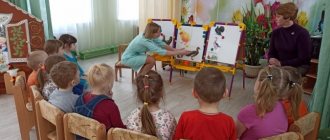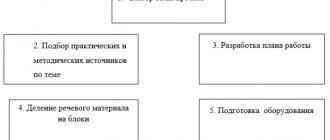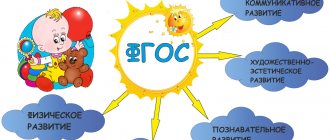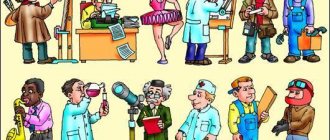25155_Les.Griby.Yagody.docx
Lexical topic: “Forest. Mushrooms. Berries" Teacher - speech therapist: Shikhova V. S. An approximate list of words that will help you: Items: strawberries, currants, raspberries, cherries, cherries, plums, wild strawberries, blueberries, lingonberries, cranberries, rowan, garden berries, wild berries, forest, clearing, bush, tree, jam, compote, jam, juice, oak, birch, linden, maple, spruce, pine, shrub, grass, crown, branches, trunk, root, leaves, boletus, boletus, chanterelle, russula, butterdish, boletus, fly agaric, honey fungus, swamp, leg, cap, mycelium. Actions: collect, dry, search, wash, eat, wet, salt, pickle, prepare, ripen, pour, hide. Signs: white, edible, inedible, poisonous, tasty, sweet, sour, aromatic, fragrant. 1. Poems. * * * “Rowan” At a rotten forest hut, a curly rowan leaned over the river. Wandering between the white trunks, I will touch the ruby berries with my hand. I love collecting volushki. They taste so bitter, but I can’t take my eyes off them. On the slope of an autumn day. And I want to call the rowan a ruby. Cranes are flying high N. Nishcheva Under the dome of bright skies, And the boat, rustling with sedge, “Lingonberry” Floats along the canal into the forest. They taste so bitter, but you can’t take your eyes off them. And it’s so cold, and I’ll pick ripe lingonberries there. And the light channel is wavy, Let's make jam, jam and compote, And from the tree with a slight whistle we'll get lingonberries to eat all year round. A cool leaf flies off. N. Nishcheva N. Rubtsov 2. Riddles. He looked at the clouds, A family lives on a tree stump: He immediately put on a cap, Mom, dad, brother and me. Brand new, nice. We have one house, and the roof is the color of chocolate. Everyone has their own. (Porcini mushroom) (Honey mushrooms) In the swamp along the path Like a stitch, on the path There are large peas. I see scarlet earrings. Who scattered so many beads - I bent down for one, Red color and sour taste? And I came across ten! (Cranberry) I was leaning, I wasn’t lazy, I filled a mug with the top. (Strawberry) This tree is a coward. A squirrel is jumping under the bushes. Everything is shaking like a bunny. And he hides nuts in the grass. Leaves - red coins - What are these bushes called? They tremble on the branch all day. Of course, the children will tell me. (Aspen) (Hazel) 3. Speech games. 1. “Which one? "(at least 3 words) Forest (green, fairy-tale, shady, pine, dense, autumn) Strawberries (fragrant, small, sweet) Cranberry, mushroom, clearing, tree, grass. 2. “Family” Forest (woodland, little forest, woodsman, forester, forester, logging truck, logging, logging), Wood (wooden, sapling, wood, woodworking), Mushroom (mushroom picker, mycelium, mushroom), Leaf... Berry... 3. “One” Tree - trees Leaf - ..., Bush - . . . , Branch-..., Bough-. . . , Barrel- . . . , Blade of grass - ..., Crown - . . . Mushroom-…, Berry-…. 4. “Let’s do the math. . . "One beetle, two beetles, three beetles, four beetles, five beetles. Oiler, raspberry, branch, cap, stem, twig. 5. “Say it right” Leaves grow in the tree. A bird sat down FROM a bush. The ant crawled out into the anthill. An owl sits IN a hollow tree. A woodpecker knocks on a tree. The hare runs away to the fox. A dragonfly flies UNDER the ground. A caterpillar crawls UNDER a branch. A butterfly flutters in a flower. Flowers grow ABOVE the tree. 6. “Cooks” Let’s prepare a pie: from raspberries - raspberry, from strawberries - ..., from cranberries - .... , from cherries - ..., from mushrooms - .... 7. “Pick up an action” (at least 3) What does the cherry do? (grows, turns green, blooms). Trunk, tree, clearing, forest. 4. Paintings by artists. I. I. Shishkin 1889 “Morning in a pine forest” I. F. Khrutsky 1842 “Still life with mushrooms” 5. Read with your child the Tale about mushrooms. “Gri decided, the boletus figured it out; Sitting under an oak tree, looking at all the mushrooms, he began to order: “Come, you little whites, to my war.” The white women refused: “We are mushroom noblewomen, we are not going to war.” - “Come, saffron milk caps, to my war.” The saffron milk caps refused: “We are rich men, we are not guilty of going to war.” - “Come, little girls, to my war.” The little girls refused: “We are the master’s cooks, we are not going to war.” - “Come, honey mushrooms, to my war.” They refused to say: “We have thin legs, we are not going to war.” - “Come and join me in war.” _ “We, milk mushrooms, are friendly guys, let's go to war! “It was like the king of peas fighting mushrooms.” (Source: All year round: Russian agricultural calendar / comp. Intro. Article by A. F. Nekrylova. - M.: Pravda, 1991. - 496 pp. http: / / aktinoya. ru/ index. php? Itemid= 165& amp; catid = 121: 2014- 08- 27- 12- 51- 04& amp; id= 593: 2014- 09- 01- 10- 13- 38& amp; option= com_ content& amp; view= article – stories by Russian writers about mushrooms. 6 This is interesting* * The longest tree in the whole world grows in California (USA). The trunk length of the evergreen sequoia is 112 meters. * * Forests on Earth cover an area of 38 million square kilometers, that is, approximately one third of all land, although once then forests made up 50 percent of the Earth's surface. * * The most forested country in the world is Finland, whose territory is more than 70% covered by forests. By contrast, the UK ranks first among countries poor in forests, with only 6% of its area covered by forest As for our country, Russians should be proud of the abundance of forest ecosystems, almost 25% of all forests on Earth are located in Russia, and our taiga is the largest forest area on the planet. 7. Coloring pages 8. Cartoons http: / / mults. info/ mults/ ? id= 434 – Cartoon “Fungus – Teremok”
LiveInternetLiveInternet
Quote from Tatyana57
Read in full In your quotation book or community!
SPEECH DEVELOPMENT. LEXICAL TOPIC "BERRIES".
Berries grow on trees, bushes, swamps, and low bushes. You can make compote, jelly, fruit drink, pie, and jelly from the berries. GAME “WHAT? WHICH? WHICH? » Cherry jelly, which one? - Cherry. Raspberry pie? - Raspberry. Currant juice? - Currant. Strawberry compote? - Strawberry. Cranberry juice? - Cranberry. GAME “WHAT JAM”. Raspberries - raspberry jam Blueberries - blueberry jam Strawberries - strawberry jam Cranberries - cranberry jam Lingonberries - lingonberry jam, etc. TELL WHICH BERRY: What kind of lingonberry? Red, sour, small. What kind of raspberry? Pink, large, sweet, juicy. What kind of blueberry? Blue, sweet, small. COMPLETE THE SENTENCES WITH PREPOSITIONS: Rowan berries grow... on a tree. Gooseberries are falling... from the bush. Strawberries were picked... twigs. Blackberries were laid out... in baskets. They looked for blueberry bushes... in the grass. Currant berries were peeking out...leaves. SAY THE OPPOSITE: Strawberries are large, and raspberries... Gooseberries are hard, and blueberries... Blackberries are sweet, and currants... Rowanberries are bitter, and strawberries... SELECT AS MANY ACTION WORDS AS POSSIBLE: Berries on the branches (what do they do?) grow, ripen, ripen, ripen , filled with juice. Berries from the branches... People in the forest berries... Juice from the berries... Juice into a glass... Jam (jam, jam) from apples... Berries into the basket... COMPLETE THE SENTENCES USING THE CONJUNCTIONS “SO THAT” AND “BECAUSE”: Mom bought a bucket of cherries, so that... Mom sorted out the currants, so that... Mom bought Sasha strawberries, because... Mom dried the rosehips... Vova did not eat gooseberries... They ground raspberries with sugar...
COMPLETE DESCRIPTIVE STORIES ABOUT BERRIES: Title. Where does it grow? Appearance. What does it taste like? What is made from it? WHERE DOES BERRY GROW. Sour cranberries grow in a swamp. You can also collect it in the spring, when the snow melts. Anyone who has not seen how a cranberry grows can walk on it and not see it. Blueberries grow - you see them: next to the berry leaf. And there are so many of them that the place turns blue. Blueberries grow in bushes. In remote places there is also a stone fruit - a red berry with a tassel, a sour berry. Our only berry, cranberry, is invisible from above. QUESTIONS: How do cranberries grow? What other berries grow in the forest? How do they grow? Which berry is invisible from above? RETELLING. BERRY PICKING. I pick berries from the branches and collect them in a basket. A basket full of berries! I'll try a little. I'll eat a little more - the path to home will be easier. And let's eat some more raspberries. How many berries are in the basket? One, two, three, four, five... I'll collect again
RIDDLES ABOUT BERRIES. Small as a mouse, Red as blood, Tasty as honey. (Cherry) I am a drop of summer on a thin leg, They weave boxes and baskets for me. He who loves me is happy to bow down. And the name was given to me by my native land. (Strawberries) In haymaking - bitter, And in frost - sweet, What kind of berry? (Kalina) Two sisters are green in summer, By autumn one turns red, the other turns black. (Red and black currants) Autumn has come to our garden, The red torch has been lit, There are blackbirds and starlings scurrying about, And, chattering, they peck at it. (Rowan) Red beads hang from the bushes looking at us, Children, birds and bears love these beads very much. (Raspberries) Low and prickly, Sweet and fragrant, If you pick the berries, you’ll rip off your whole hand. (Gooseberry) The long-legged one boasts - Am I not a beauty, But I myself am a bone and a red blouse. (Cherry) It’s scarlet, sugary, Kaftan is green, velvet (Watermelon) Striped balls came to us from melons. (Watermelon) Small as a mouse, Red as blood, Tasty as honey. (Cherry) I am a drop of summer on a thin leg, They weave boxes and baskets for me. He who loves me is happy to bow down. And the name was given to me by my native land. (Strawberries) In the baking season, the stumps have many thin stems, Each thin stem holds a scarlet light, We rake the stems and collect the lights. (Strawberries) Both red and sour, they grew in the swamp. (Cranberry)
Series of messages “Speech Development”:
Part 1 - POSTER. BERRIES. Part 2 - SPEECH DEVELOPMENT. LEXICAL TOPIC “POWERIES”. ... Part 11 - VILLAGE YARD. A STORY ABOUT PETS. Part 12 - SPEECH DEVELOPMENT. LEXICAL TOPIC “GIFTS OF AUTUMN”. Part 13 - SPEECH DEVELOPMENT. LEXICAL TOPIC "BERRIES". Part 14 - SPEECH DEVELOPMENT. LEXICAL TOPIC “TREES AND SHRUBS”. Part 15 - SPEECH DEVELOPMENT. RIDDLES ABOUT BERRIES. Part 16 - SPEECH DEVELOPMENT. RUSSIAN FOLK TALE “MASHA AND THE BEAR”. HOME THEATER. Part 17 - SPEECH DEVELOPMENT. RIDDLES ABOUT VEGETABLES. Part 18 - SPEECH DEVELOPMENT. RIDDLES ABOUT FRUIT.
Speech therapy lesson on the topic: Mushrooms, 1st grade
Lesson summary on the formation of pronunciation and the development of auditory perception
Venue: GKS(K)OU boarding school No. 27 in the city of Pyatigorsk, Stavropol Territory
Class: 1st grade, 4th quarter (open lesson) Time: April, 2015 Lesson topic : “Mushrooms”, sound production R. (see. Appendix 1. Presentation of the lesson.) Purpose of the lesson: formation of correct pronunciation of speech sounds and development of auditory perception. Objectives: - development of the articulatory apparatus; - formation of correct breathing; — development of fine and gross motor skills; — setting the sound R; - distinguishing by ear words and phrases corresponding to the topic of the lesson; - distinguishing educational and social proposals by ear; — formation of intelligible reading skills; — expansion of vocabulary; - expanding your horizons and knowledge about the world around you; - formation of logical thinking and memory development. Lesson equipment: computer, verbotonal hearing aids, speech therapy probes, student’s personal folder (portfolio) with speech material for individual lessons, multimedia programs for breathing development, games, presentation in POWER POINT for the lesson, dummies of mushrooms.
LESSON PROGRESS
1. Organizational moment . Setting up hearing aids. Greetings. - How can you hear me? — I hear well (badly). 2. Speech exercises. Auditory perception of educational and social phrases. • What is your name? • What lesson is now? • What season? • How old are you? • What is your mother's name? • What is dad's name? • In what grade do you study? • What school do you go to? • What is your last name? • What is the weather today? • What day of the week? (Slide 1) 3. Massage of the articulatory apparatus . (Slide 3) 4. Articulation gymnastics for lips and tongue. Preparatory exercises for setting the sound R. (Slide 4,5,6,7,8,910,11) Exercises: “Painter”, “Horse”, “Mosquito”, “Cup”, “Car”, “Swing”, “Woodpecker”, “Mushroom”. 5. Exercises to establish proper breathing. (Slide 12) Exercises are performed using a multimedia application using the Smetankin system. 6. Exercises for setting the sound R. (Slides 13, 14, 15, 16) 7. Read syllables and words with the sound R (Slides 16,17) 8. Name words with the sound R. Work with the presentation. (Slide 18) 9. Development of auditory perception. Name words with the sound R. (Slide 19) 10. Development of fine and gross motor skills. Exercises for fingers. (Slide 20, 21, 22,23) 11. Completing tasks for the development of logical thinking, intelligence, and speech development. Look at the picture and say: What time of year? What time of day? What's the weather like? (Slides 24, 25, 26, 27) 12. Phonetic rhymes on the sound R and on the topic “Mushrooms” (Slide 28) RI-RI-RI THIS IS MUSHROOMS The exercise is performed standing with phonetic rhythmic movements. Goal
: Formation of coordination of movements, development of memory, rhythm, breathing, voice.
At the same time, a mental attitude towards the topic of the lesson is carried out. 13. Announcement of the topic of the lesson. Reading words on the topic “Mushrooms”. The student reads the words and shows the corresponding picture on the computer monitor. The desired picture must be selected from the appropriate set. Goal:
automation of the dictionary on the topic, development of logical thinking, automation of reading skills of familiar words on the topic.
(Slide 29, 30) Words: • Boletus • Chanterelles • Amanita • Boletus • Porcini mushroom • Russula • Toadstool 14. Work on determining the names of mushrooms. The task “What mushroom?” The student is asked to determine which mushroom from the picture on the computer monitor. You must choose the correct answer from the three proposed options. The student is given a word and must match this word with a picture. The student works at the computer independently, the teacher checks the answer. Task type: test. Goal: testing knowledge of the dictionary on the topic, developing skills of independent thinking, analysis and synthesis, developing the correct pronunciation of words on the topic. (Slides 31, 32, 33, 34, 35, 36, 37) 15. Task “Which mushroom?” complicated type . The student must say the name of the mushroom without relying on a word, that is, independently. Goal: consolidation of thematic vocabulary, development of memory, intelligence. Task type: test. (Slides 38,39,40,41,42) 16. Task “Determine which mushroom is edible and which is inedible?” Goal: testing the skills and knowledge of the dictionary on the topic “Mushrooms”, development of independent thinking, intelligence, pronunciation. (Slide 43) 17. Multimedia game “Tell me which mushroom?” Goal: training intelligence, speed of thinking, consolidation of vocabulary on the topic “Mushrooms”, development of the articulatory apparatus. 18. Game “Guess which mushroom is hidden?” Determine from the offered pictures on the computer monitor which mushroom is hidden under the tree, under the fir tree, under the stump, under the leaves. Goal: developing intelligence, logical thinking, consolidating vocabulary on the topic “Mushrooms”, developing the correct pronunciation of words on the topic. (Slide 45) 19. Development of auditory perception. Distinguishing words on the topic “Mushrooms”, you need to pronounce the word you hear and at the same time show the corresponding picture on the computer. Distinguishing 2-3 words on the topic of the lesson on the bare ear. Goal: development of auditory perception, attention, ability to distinguish familiar words, formation of self-control skills for the pronunciation of words and speech sounds. (Slide 44) 20. Summing up the lesson. Achieving goals and objectives, a short conversation with the student about what was successful and what was not successful in the lesson, what to strive for in order to achieve good results.
We recommend watching:
Summer leisure for younger schoolchildren. Scenario Speech therapy morning in grades 1-2 with a presentation on the topic: Autumn Crossword puzzles about mushrooms with answers for elementary school students, grades 3-4 Extracurricular activity “Mushrooms”, grade 1
Similar articles:
Extracurricular activity in Russian language, grades 1-2






